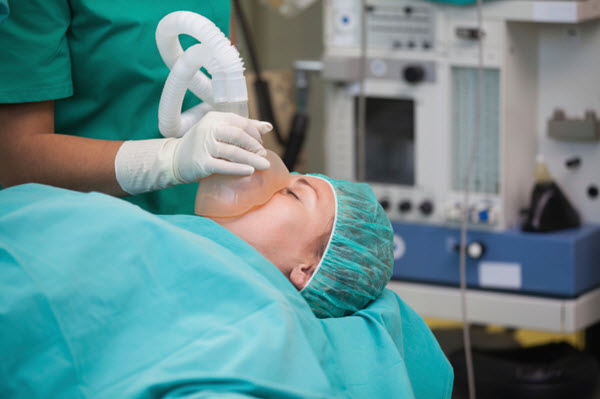Nursing has always been an attractive profession. It’s one of the few jobs that can actually let you earn good money while being able to help other people. However, contrary to what most people believe, nurses aren’t paid the same. Their specialty and skills can play a huge role in the amount of money they receive for their service.
If you are curious to know, here are the highest paid nursing specialties.
1Certified Registered Nurse Anesthetist

Average salary: $143,000
Being a certified registered nurse anesthetist will enable you to work in a variety of settings. You can work in critical care hospitals, medical-surgical hospitals, mobile surgery centers, and even military medical facilities. This specialty requires a Master’s degree in nursing as well as certification by taking the national exam.
As a nurse anesthetist, your primary responsibilities will include administering anesthesia during diagnostic, surgical or therapeutic procedures. You’ll provide care for your patients before, during and after you induct the anesthesia. You’ll also monitor the patient during the procedures.
2Mental Health Nurse

Average salary: $99,000
Mental health nurses or psychiatric nurse practitioners primarily work as a therapist. They help patients deal with anxiety, depression, suicidal thoughts and other mental issues that need counseling. Apart from the patients, they also work with the patients’ families.
Psychiatric nurse practitioners perform assessments, create treatment plans and prescribe medications. Despite their scope, they are still expected to work with doctors and make referrals as necessary. Take note that this specialty can be extra stressful but, when performed properly, it’s also highly rewarding.
3Nurse Researcher

Average salary: $95,000
If you have strong writing skills, you should consider being a nurse researcher. Apart from the impressive salary, the specialty will enable you to work in different industries, universities and medical laboratories.
Nurse researchers are like scientists. They thoroughly study the various aspects of the healthcare industry. They look for ways to improve the quality of healthcare by conducting studies and implementing their results to determine their impact.
Institutions have different requirements but, in general, nurses who have doctoral degrees (Ph.D.) are more likely to get hired.
4Family Nurse Practitioner

Average Salary: $91,730
Family nurse practitioners have more autonomy with how they function. They run their own clinics and they are particularly in demand in mid-sized family practices and even in critical care. They work closely with their patients in identifying symptoms, history as well as treatment.
To become a family nurse practitioner, you need to have 1 to 2 years of experience after you become a registered nurse. After gaining the necessary experience, you can enroll in an FNP program.
5Geriatric Nurse

Average Salary: $75,000
Geriatric nurses are highly in-demand these days, particularly with the aging population in the country. If you are considering this specialty, keep in mind that you will not only be focused on treating and managing disease; you also have to work with your patients in promoting health and wellness, managing existing and new medical conditions and referring patients to other resources if needed.
To become a geriatric nurse, you need to have 2 years of clinical experience as a registered nurse. This includes spending around 2,000 hours providing geriatric care. In addition to that, you’ll also need to take 30 hours of continuous education courses involving the specialty. Earning a Doctorate in Nursing Practice or a Master’s of Science in Nursing can increase your salary.
See Also: 10 Lifehacks for Geriatric Nursing Care
Now, after knowing these top nursing specialties, there’s another question you need to answer.
How Do You Pick The Right Nursing Specialty?
Starting your clinical and finding an area that really interests you should make selection easy. However, as there are several nursing specialties, you may find it hard to decide right away.
If that is the case, here are some tips you can use when choosing:
- Find your interest
The first thing you need to consider is your passion. If you aren’t interested in what you’re doing, there’s a good chance you’ll end up feeling stressed and frustrated.
For example, if you feel value taking care of children, then pursue pediatric nursing. In case you like working in an energetic atmosphere, you should consider working as a critical care nurse.
- Assess your personality
Your personality can be your weakness as well as your strength. Before you decide, take an honest look at yourself. If you feel like you can’t handle a fast-paced setting, then skip the intensive care unit or the emergency room. There’s nothing wrong with choosing a less stressful nursing specialty if that will help you function better.
- Know the qualifications
Most specialties require advanced skills and certifications. Some may even need you to get back to school. If you are thinking about undertaking a certain specialty, you need to know exactly how much extra work you’re going to be doing.
- Working settings
Not all nurses work in the hospital. Some of them work in schools, private institutions, and government agencies. There are nurses who work independently, too.
Although work settings may not look like a critical factor in choosing a specialty, you still need to pay attention to it. The environment you work in can play a huge role in the way you do your job and the happiness you derive from your nursing career.
Still feeling unsure?
Ask other people about their experiences and their reasons for choosing their specialty. You can ask different nurses during your clinical rotations or you can shadow a nurse working in your target specialty. Seeing the work and experiencing the setting first-hand will give you a clearer idea of what you’ll be getting yourself into.
See Also: Is Nursing School Hard?



















